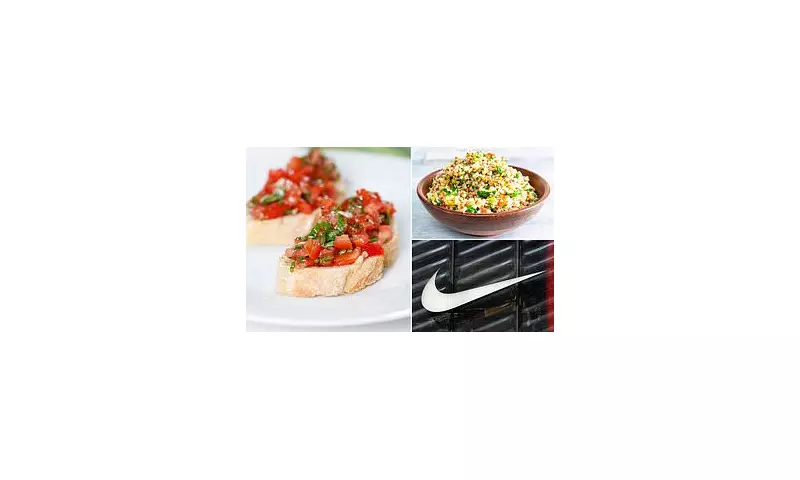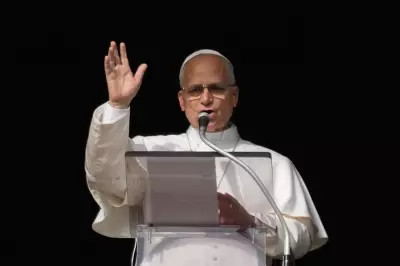
How you speak can say a lot about you, and according to a recent piece in Country Life magazine, knowing how to correctly pronounce 'Moët' champagne is a hallmark of 'the perfect gentleman'. But are you getting it right? The revelation that the Dutch-origin name requires a hard 'T' – 'Mo-ETT' – has left many Brits re-evaluating their linguistic flair.
The Most Common Pronunciation Pitfalls
While language is constantly evolving, certain mispronunciations can still raise eyebrows. Here is a round-up of some of the most frequent verbal stumbling blocks, complete with the correct way to say them.
Starting with the sportswear giant, Nike, the company chairman himself has confirmed it is a two-syllable word. The stress is on the first syllable, producing 'NY-kee', which matches the name of the Greek goddess of victory it was named after.
When it comes to the popular pasty, Ginsters has nothing to do with the spirit; it demands a hard 'g' sound. For the German sports car, Porsche, the native pronunciation is closer to 'Paw-shuh' than the often-heard 'Porsh'.
That Italian appetiser, bruschetta, has a 'ch' as hard as the bread it's served on, making it 'brus-KETTA'. And in a twist of irony, the word pronunciation itself is often mangled into 'pro-NOUNCE-iation' instead of the correct 'pro-NUNCE-iation'.
Exotic Ingredients and Borrowed Words
Global cuisine has introduced words that often trip us up. The Mexican chipotle should be said with a final flourish: 'chuh-POT-lay'. Meanwhile, the South American super-grain quinoa is pronounced 'KEEN-waa'.
Another Greek borrowing, epitome, ends with 'me' rather than 'tome'. And according to the Mail's Quentin Letts, the striped animal is a 'Zebra', never a 'zeebra', unless you are channelling Inspector Clouseau.
The luxury Spanish fashion house Loewe, with its German-named founder, results in the unusual 'low-WEY-vey'. As the brand says, it's 'easy when you know how'.
Your daily caffeine hit should be an 'espresso', from the Italian for 'pressed out', not an 'expresso'. Similarly, if you want to sound like a true barista, 'latte' requires a hard 'a', not a 'lartay'.
Everyday Errors and Regional Variations
Some mistakes are so common they feel right. The word for atomic energy is 'NYOO-klee-uh' (nuclear), not the Homer Simpson-inspired 'nucular'. The term for exaggeration, hyperbole, is 'hi-PER-buh-lee', not 'hyper-bowl'.
Thanks to a process called 'haplology', where we omit syllables, 'probably' often becomes 'probly'. The same happens with 'library' becoming 'libry' and 'secretary' squashing to 'secretry'.
Strangely, the British 'LEF-tenant' for lieutenant seems to have arisen from a misreading of the 'u' as a 'v', making the American 'LOO-tenant' closer to the original French.
The American 'PRY-vasy' for privacy is now sufficiently settled in the UK that dictionaries list it alongside the traditional 'PRIV-uh-see'. A prescription, from the Latin for 'writing before', should be a 'PRE-scription', not a 'PER-scription'.
For French lingerie, to be properly correct, use 'LAN-zhuh-ree', not the Del-boy-esque 'LAN-zhuh-ray'. Remember the 'c' in the middle of Arctic, and that in British English, schedule starts with 'shed', not 'sked'.
We also favour 'KILL-oh-meter' over 'kill-OMM-eter', and a route is a 'root', not a 'rout'. The word skeleton is not a 'skellington', and there is no '-er' in the middle of athletic.
The beastly word veterinary is standardly 'VET-er-inary', though dictionaries also allow for the swallowed 'VET-inary'.
And finally, the great British divide: the scone. Does it rhyme with 'gone' or 'cone'? The answer is both, depending on where you are in the country. Its pronunciation is entirely regional, and the dictionary diplomatically allows for either. Now, is that 'ee-ther' or 'eye-ther'? Perhaps we should end matters there.





